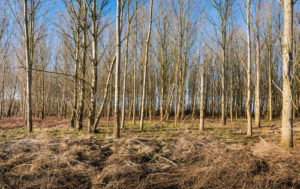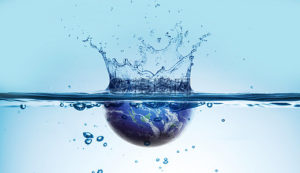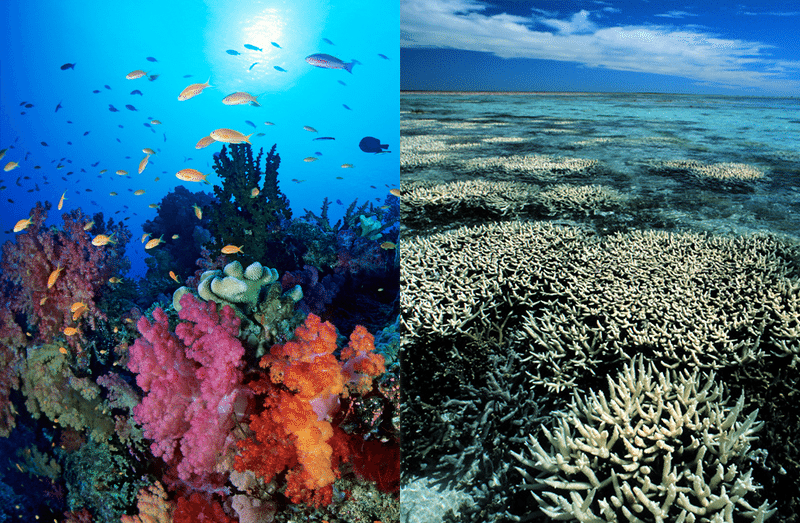According to Conservation Fund in 2002 of <Living Earth>, With humans currently using more natural resources than they can replace by 20 percent, the overall standard of living will decline after 2030 if governments do not intervene. The report indicates that there are 35% of living species on earth decreased in the past 30 years. Freshwater life was reduced by 54%; A 35 percent decline in Marine biodiversity; Tree species decreased by 15%.
The main manifestation of the resource problem is: the world’s forest decline is serious, according to green peace organization estimates, in the past 100 years, the world’s primary forest has been destroyed 80%; The problem of soil degradation is not optimistic. As a result of soil degradation, the world’s per capita cultivated land area has decreased. According to the statistics of the United Nations, the world’s per capita cultivated land area has decreased by about half from 1975 to 2000. The problem of water resources is becoming more and more serious.

There are lack of water resources and serious water pollution which became one of the most important environmental resources problem. That’s also one of the significant challenges that human beings facing. According to the UN’s 2015 world water development report there are 40% which is a huge distance that between human beings’ demand for water and rehydration.

This responsibility and mission will eventually fall on each of us. We have no way to get rid of it and have no chance to change the past, but what I can do is to start to feel the life and power of the nature around me from now on, and to respect and protect it.

I think people take Earth’s resources for granted and forget that we do not have an infinite amount of resources. Hopefully the government will start to bring more attention to the issue, and people all around the world can become more conscious of their wastefulness.
True, Julianah—we definitely take the earth’s resources for granted and especially water. Some experts predict that the wars in future are going to be over water, not oil.
I pray that in the midst of all that is happening, people would pause to consider the larger issues phrazle affecting our world, rather than focusing only on their own immediate concerns. Governments will continue their capitalist practices of damaging the environment until the general public begins to recognize and take action.
I completely agree with you, people think that the Earth’s resources are limitless and will last for their lifetime. They think that water, forests, oil and other minerals will last for another millennium, but this is not true. I think that humanity will soon face big challenges, because progress and consumption are developing exponentially. I clearly realized this 10 years ago when I worked as a manager at the CARSHE company https://carshe.com, which designs and installs exhibition stands at major international events around the world. Visiting these large Trade Fairs and exhibitions, I saw how much the production of goods and services has increased around the world. We make so many different products, but it’s time to think about the ecology of our planet, because we only have one and we can’t fly to Mars yet.
With all that is going on right now, I hope people take the time to reflect on the problems our planet is facing – rather than thinking selfishly about one’s everyday life. We are in serious trouble, and until we as a whole community begin to realize and take action, governments will continue in their capitalistic habits destroying our environment. I believe there needs to be some sort of reformation where we become less materialistic and more appreciative of the natural world around us before we destroy it.
I agree with you, Alex—there needs to be a way for everyone to be mindful about sustainability of resources and the environment that they can agree on, no matter what their different backgrounds and beliefs.
In my opinion some people don’t take this serious topics too serious as they should. I wish that climate change had the same media coverage as Covid-19
I like the connection with COVID, Joaquin—looking forward to your reaction to the Grist op-ed, which talks about this subject.
The destruction of human to nature has affected the sustainable development of human beings and the recycling of resources. In a modern society with a large population base, resource exhaustion is inevitable. The way for us that we can delay resource exhaustion is to use it sparingly. From the perspective of society, we need to find new energy or form an energy cycle. In conclusion, we should respect nature.
We definitely need to find new forms of energy that are more sustainable, Dale. I also agree that we need to be mindful of our resources—since WWII onwards, human civilization has been spending natural resources like there is no tomorrow.
In my opinion, the rarely freshwater will be a big problem for the world and also will damage the development of fo human beings. People really need to pay attention to that.
I agree, Summer!
In my opinion, rarely freshwater will be a big problem for the world and also will damage the development of fo human beings. People really need to pay attention to that.
True, Summer, the freshwater scarcity issue is going to be the cause of wars in the future.
This blog post is very interesting as it adds quantitative data on the number of species that are dying. It is important to note that it seems like without government intervention this problem could continue. However, I would be interested to learn about what the gov specifically has done that has been effective in the past or what plans are in place for such a catastrophe.
Great observation, Parth! Bochen’s use of logos in the article is very persuasive. I agree with you, we need to learn from what worked in the past in order to create solutions for the future.
Humans needs are infinite but natural resources are finite. There is a line between shortage and complete annihilation of the resources and we humans are flirting with it
I love the way you put that, Divij: “human needs are infinite but natural resources are finite.” That puts us in a real dilemma, doesn’t it?
Well done on the Class Blog, Bochen—great use of logos in the data points, facts, and argumentation buildup. Your photographs were also really persuasive, and hit home with emotional appeal the hole that we human beings are digging for ourselves with our wasteful use of water. I also really like how powerful your closing sentences are: “This responsibility and mission will eventually fall on each of us. We have no way to get rid of it and have no chance to change the past, but what I can do is to start to feel the life and power of the nature around me from now on, and to respect and protect it.” Its a strong argument that I agree with, and it reminds me of a quote that Gandhi once said (“You must be the change that you want to see in the world.”)
It is only when we are presented with precise Numbers that we realize that this is one bloody fact after another in our lives.The decrease of biological species, the destruction of water resources, the shrinking of forest area.These are not one or two Numbers can be summed up, our hope of survival step by step disappeared in front of our eyes.
WE should start maximizing our resources and prevent its overuse. If we do not act now we will end up consuming all natural resources and be forced to find other alternatives because we did not properly manage them. This is an important topic that must be addressed.
Although the study of any issue requires a thorough study of several sources to obtain the most objective result. But sometimes I don’t have enough quality and professional information, so I use the resource https://writinguniverse.com/free-essay-examples/mother/ I often review the provided samples to expand my knowledge. There are also detailed guides on the website.
Glad to see a lot more companies moving to a more sustainable models(EV laws especially, but also stuff like recycled materials in apparel niche, i.e a lot of shoes made of recycled materials currently, I think I’ve even seen a few at Run United https://rununited.com/ – one of the local running stores). It’s definitely a right direction, but feels like changes happens too slowly for it to make an impact.
The Marshall Goldsmith Library serves as a priceless asset for those keen on leadership, management, and personal growth. Dr. Marshall Goldsmith’s remarkable achievements, including being ranked the #1 Leadership Thinker and a top 5 Management Thinker in 2015, along with being named among the top ten Most-Influential Business Thinkers globally, underscore his profound expertise and impact in this domain.
If you recently visited Walgreens and want to give your feedback, you can take the Walgreenslistens.com survey at http://www.walgreenslistens.com/survey. It’s a quick and easy way to share your thoughts and win a $3,000 reward.
Drift across continents with drift hunters ! Connect with players worldwide, challenge the elite, and prove your drifting prowess on the global stage.
After visiting any participating Subway restaurant, you can use the newly printed survey code from your most recent receipt to finish the Subway Listens survey. You can get a free cookie with each unique survey code, which you may accumulate and use for further cookies at a later time. https://globalsubwaywin.store/
Thank you for the insightful and creative article! It was packed with great ideas and valuable information. I really appreciate the efforts from a top jewellery tag. Your expertise is invaluable
What a refreshing take on the subject! You’ve got a real gift. @ Papa’s Pizzeria
K Tag portal makes managing your toll payments and account settings easy and efficient. Whether you’re driving through the Pennsylvania Turnpike or another toll road in the state, having access to your EZ Pass account online through the EZ Pass PA login portal is incredibly convenient. EZ Pass PA Logo In this guide, we will walk you through the login process, how to sign up, manage your account, and much more.
EZPassPA login portal makes managing your toll payments and account settings easy and efficient. Whether you’re driving through the Pennsylvania Turnpike or another toll road in the state, having access to your EZ Pass account online through the EZ Pass PA login portal is incredibly convenient.
The problem of soil degradation is not optimistic unblockedfreegame.com
Overall Resource Depletion and Decline in Standard of Living: Humans are currently consuming natural resources 20% faster than they can be replaced. This trend, if not addressed by government intervention, is projected to lead to a decline in the overall standard of living after 2030. tellpopeyes com
The character customization in スプランキー adds so much personality to every composition.